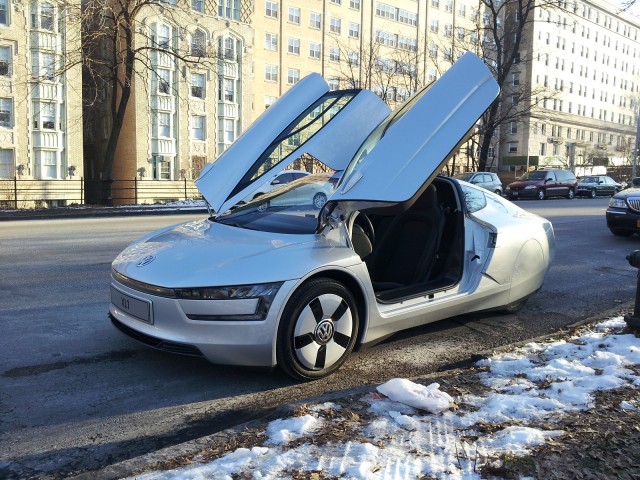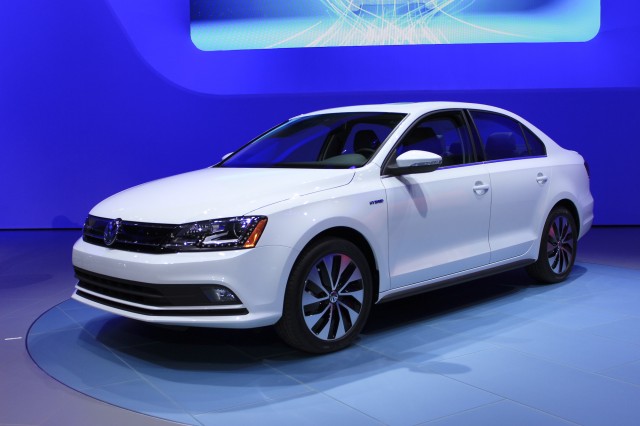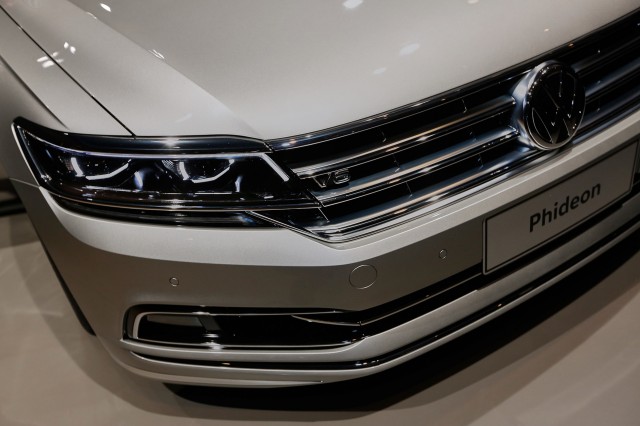Gasoline may cost $2 a gallon or less in many parts of the U.S., but new competitors to the Toyota Prius seem to be popping up all over the place.
The 2017 Hyundai Ioniq range of hybrid , plug-in hybrid, and electric models just made its global debut at the Geneva Motor Show, only a few weeks after the Kia Niro hybrid crossover SUV
, plug-in hybrid, and electric models just made its global debut at the Geneva Motor Show, only a few weeks after the Kia Niro hybrid crossover SUV .
.
Now it appears Volkswagen, a laggard in hybrids against many of its Asian competitors, may introduce its own dedicated hybrid car as well.
According to the British magazine Auto Express, VW will launch a dedicated hybrid model that will maximize the fuel efficiency of its existing hybrid powertrain.
efficiency of its existing hybrid powertrain.
It could be sold under the XL3 name, connecting it to the ultra-efficient two-seat diesel-electric plug-in hybrid model, sold in very low numbers at very high prices and not exported to North America.

Volkswagen XL1 (European model), New York City, Dec 2013
Such a car, the magazine's sources indicate, would use a newer generation of Volkswagen's hybrid powertrain, now offered in the 2016 VW Jetta Hybrid.
It would feature a specially-tuned version of the turbocharged 1.4-liter four-cylinder engine, with cylinder deactivation to boost efficiency further.
The single electric motor, sandwiched between the engine and VW's automatic direct-shift gearbox, would have an output of 30 kilowatts (40 horsepower).
Like most conventional hybrids, it would use a small high-voltage lithium-ion battery pack to give it an all-electric range of only 1 mile or so at lower speeds and light acceleration.

2015 Volkswagen Jetta Hybrid, 2014 New York Auto Show
The projected fuel consumption of the future Volkswagen XL3 would be as high as 94 miles per British gallon on the European test cycle, or perhaps 50 to 60 mpg combined under tougher EPA rules.
That corresponds to a consumption of 3 liters per 100 kilometers, hence the "3" in the name XL3—just as the "1" in XL1 referred to its goal of using just 1 liter per 100 km.
VW's long-term plan to meet rising U.S. fuel-economy rules had relied on its TDI diesel engines, but the six-month-old diesel emission scandal has rendered that plan highly uncertain.
While VW Group globally focuses on adding plug-in hybrid versions across most of its volume vehicle lines, the company will likely need many more conventional hybrids to comply with not only fuel-economy rules but also carbon-emission targets outside North America.
A dedicated hybrid model could be one way to boost those numbers. You might even say it seems to be all the rage these days.




No comments:
Post a Comment